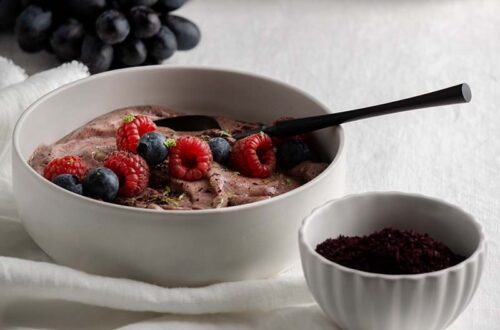In a world often characterized by excess and constant stimulation, the philosophy of minimalism offers a refreshing approach to living. Minimalism goes beyond decluttering physical spaces; it’s a mindset that emphasizes simplicity, intentional living, and finding joy in the essentials. In this article, we’ll explore the concept of minimalism, how simplifying life can lead to greater joy and contentment, the benefits of adopting a minimalist lifestyle, and practical tips to begin your journey toward joyful living. Additionally, we’ll recommend insightful books that delve into the art of minimalism.
Understanding Minimalism:
At its core, minimalism is about focusing on what truly matters and letting go of excess. It’s a conscious choice to simplify various aspects of life, including possessions, relationships, and commitments. Minimalism encourages individuals to question consumerist culture and shift their focus from acquiring more to finding contentment in the present.
The Joy in Simplicity:
- Clarity and Focus:
- Minimalism provides mental clarity by eliminating distractions. With fewer possessions and commitments, individuals can concentrate on what truly brings them joy and fulfillment.
- Reduced Stress:
- The constant pursuit of more can contribute to stress and overwhelm. Simplifying life by letting go of unnecessary possessions and obligations reduces mental and physical strain.
- Enhanced Well-Being:
- By prioritizing meaningful experiences over material possessions, minimalism fosters a sense of well-being. Happiness is derived from moments, connections, and personal growth rather than accumulating stuff.
- Financial Freedom:
- Adopting a minimalist lifestyle often leads to more mindful spending. This, in turn, can result in financial freedom as individuals focus on needs rather than wants, saving money for experiences that bring lasting joy.
- Increased Time:
- Simplifying life frees up time previously spent managing belongings or engaging in non-fulfilling activities. This newfound time can be directed toward pursuing passions, hobbies, or spending quality moments with loved ones.
- Practice Gratitude:
- Cultivate a habit of gratitude as an integral part of your minimalist journey. Acknowledge and appreciate the things you already have, fostering contentment in the present.
- Mindful Consumption Challenges:
- Engage in mindful consumption challenges, such as a shopping hiatus or a minimalism game where you progressively declutter a growing number of items each day for a month. These challenges encourage a conscious approach to acquiring and letting go.
- Create Multifunctional Spaces:
- Design living spaces with multifunctionality in mind. Embrace furniture and decor that serve multiple purposes, optimizing your environment for both practicality and aesthetics.
- Mindful Media Consumption:
- Apply minimalism to your media consumption. Unsubscribe from unnecessary digital subscriptions, organize your digital files, and curate your media diet to focus on content that truly adds value to your life.
- Invest in Experiences:
- Shift your focus from acquiring material possessions to investing in experiences. Allocate resources and time towards creating memories through travel, adventures, and shared moments with loved ones.
- Capsule Wardrobe Experiment:
- Consider experimenting with a capsule wardrobe—a curated collection of versatile, high-quality clothing items. This reduces decision fatigue and encourages a mindful approach to personal style.
- Digital Detox Weekends:
- Designate weekends for digital detoxes. Disconnect from screens, engage in analog activities, and savor the simplicity of life without constant digital distractions.
- Mindful Time Management:
- Apply minimalist principles to time management. Prioritize essential tasks, set boundaries on commitments, and create space for leisure, ensuring a balanced and joy-filled life.
- Letting Go of Sentimental Clutter:
- Tackling sentimental items can be challenging. Approach it with a mindset of cherishing memories rather than clinging to physical objects. Keep what truly holds value and find creative ways to memorialize others.
- Mindful Social Connections:
- Apply minimalism to your social life by nurturing quality connections over quantity. Invest time in relationships that bring joy, support personal growth, and align with your values.
- Mindful Eating Practices:
- Extend minimalism to your diet by adopting mindful eating practices. Choose whole, nutritious foods over processed options, savor each bite, and appreciate the simplicity of nourishing your body.
- Mindful Home Decor:
- Embrace minimalist home decor, focusing on clean lines, essential furnishings, and a sense of open space. Incorporate elements that bring you joy and avoid unnecessary clutter.
- Regular Life Assessments:
- Conduct regular life assessments to ensure that your choices align with your evolving values and aspirations. Adjust your minimalist approach as needed, embracing it as a flexible and personal lifestyle.
- Share Your Journey:
- Share your minimalist journey with others. Whether through a blog, social media, or casual conversations, your experiences may inspire and support others who are considering or navigating their own path to joyful living.
How to Start Being Minimalist:
- Reflect on Values:
- Begin by reflecting on your values and what truly matters to you. Identify areas of your life where excess may be causing stress or detracting from your sense of joy.
- Declutter Gradually:
- Start the decluttering process gradually, focusing on one area at a time. Consider the Marie Kondo approach of keeping items that “spark joy” and letting go of the rest.
- Mindful Consumption:
- Adopt mindful consumption habits by questioning purchases. Before acquiring new items, ask yourself if they align with your values and if they genuinely contribute to your happiness.
- Digital Minimalism:
- Extend the principles of minimalism to your digital life. Streamline your digital spaces, unsubscribe from unnecessary emails, and declutter your virtual environment for a clearer mind.
- Embrace Simple Pleasures:
- Cultivate an appreciation for simple pleasures. Find joy in experiences, connections, and activities that don’t rely on material possessions.
- Quality Over Quantity:
- Prioritize quality over quantity when it comes to possessions. Invest in items that hold value and longevity, avoiding the temptation of accumulating unnecessary items.
Book Recommendations on Minimalism:
- “The Life-Changing Magic of Tidying Up” by Marie Kondo:
- Marie Kondo’s iconic book provides a step-by-step guide to decluttering and organizing your living space, emphasizing the transformative power of tidying up.
- “Essentialism: The Disciplined Pursuit of Less” by Greg McKeown:
- Greg McKeown explores the philosophy of essentialism, encouraging readers to focus on what truly matters and eliminate non-essential distractions.
- “Goodbye, Things: The New Japanese Minimalism” by Fumio Sasaki:
- Fumio Sasaki shares his personal journey toward minimalism, offering insights into the freedom and joy that come with simplifying life.
- “Soulful Simplicity: How Living with Less Can Lead to So Much More” by Courtney Carver:
- Courtney Carver advocates for a simplified life that leads to greater abundance, both in terms of well-being and meaningful experiences.
- “Digital Minimalism: Choosing a Focused Life in a Noisy World” by Cal Newport:
- Cal Newport explores the impact of digital distractions on our lives and provides practical strategies for embracing a more intentional and minimalistic approach to technology.
Conclusion: A Joyful Journey into Minimalism:
As you embark on the journey of minimalism, remember that it’s a personal and evolving process. The art of simplifying for happiness involves embracing a mindset that values experiences, connections, and personal growth over the accumulation of material possessions. Through intentional choices and a commitment to what brings true joy, minimalism becomes a pathway to greater contentment, mental clarity, and a more fulfilling life.





